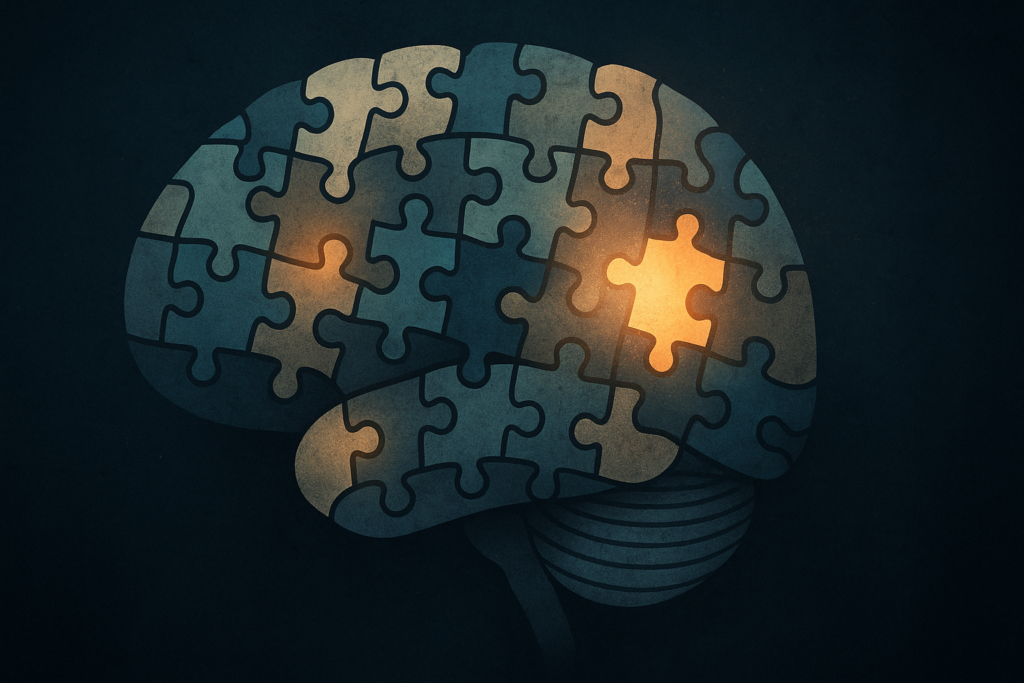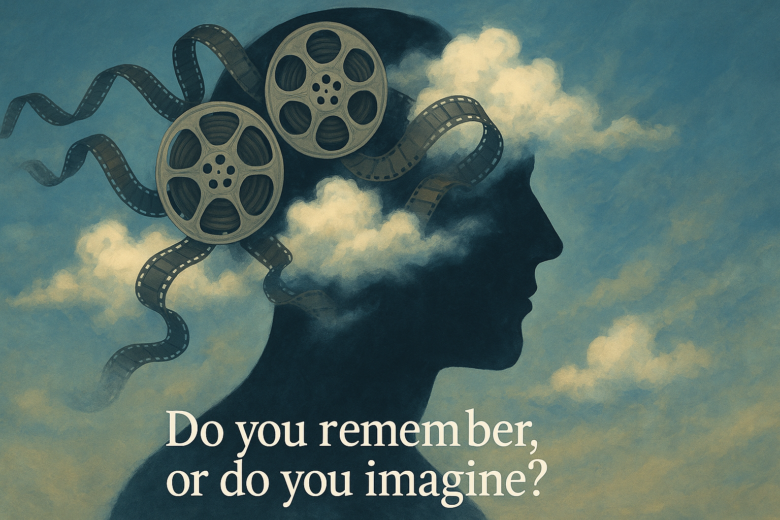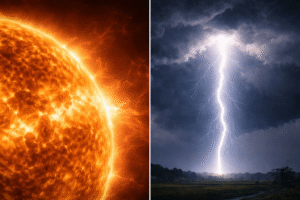Fun Fact: Nearly 70% of people in psychological studies believe they’ve experienced a memory that never actually happened.
Have you ever been absolutely sure that something happened—only to find out later it didn’t? Maybe you vividly remember your childhood home having blue walls, but photos show they were green. Maybe you recall a friend saying something they insist they never did. Or perhaps you, like millions of others, remember Nelson Mandela dying in the 1980s.
Welcome to the weird world of false memories.
In this blog, “Why We Remember Things That Never Happened,” we’re diving into one of the strangest—and most uncomfortable—realities of how the human brain works: your memory is not a recording device. It’s a story editor. And sometimes, it makes things up.
Memory Isn’t a File. It’s a Story You Keep Rewriting
We tend to imagine memory as a mental hard drive—storing clean, chronological files of our experiences. But that’s not how it works.
Neuroscientists now understand that memory is reconstructive, not reproductive. Every time you recall something, your brain rebuilds the memory from scratch. It uses bits of actual experience, mixes them with context, emotion, and expectation—and sometimes gets creative.
Think of it like a movie remake: same title, but with new scenes, cast changes, and the plot tweaked.
How False Memories Form
So why do false memories happen? Here are the top ways:
Suggestion
Psychologists like Dr. Elizabeth Loftus have shown that suggestion alone can implant false memories. In one famous study, participants were told they had once been lost in a mall as children—even though they hadn’t. Many later “remembered” the event in vivid detail.

Emotion
Trauma or stress can distort memory. In emotional moments, we often remember the feeling more than the facts—and our brains fill in the blanks.
Social Reinforcement
If a friend or family member repeatedly tells you something happened, you’re more likely to believe it—even if you originally knew it wasn’t true.
The Brain’s Need for Coherence
Your brain doesn’t like gaps in your life story. So when there’s a blank space, it fills it—with assumptions, guesses, or even other people’s experiences.
Sleep and Imagination
Dreams, daydreams, and repeated visualization can easily sneak into your memory bank. Think you remember that dream? Or did you remember imagining it? Good luck untangling it.
The Mandela Effect: Collective False Memories
Millions of people around the world remember Nelson Mandela dying in prison in the 1980s. He didn’t. He was freed in 1990 and went on to become South Africa’s president in 1994.
This phenomenon—where large groups share the same false memory—is known as the Mandela Effect. Other famous examples include:
- The Monopoly Man never had a monocle.
- Pikachu’s tail never had a black tip.
- “Luke, I am your father” was never actually said in Star Wars (Darth Vader says, “No, I am your father.”)
These aren’t just trivia errors—they’re reminders that reality is filtered through a faulty lens we trust far too much.
Real-World Consequences: When False Memories Hurt
False memories aren’t just a psychological quirk. They can have serious consequences.
- Wrongful Convictions: Eyewitness misidentification is a leading cause of wrongful imprisonment, often fueled by memory distortion.
- Family Conflict: Differing “memories” of the same event—especially in emotionally charged situations—can lead to lifelong resentment.
- Mental Health: In conditions like Post-Traumatic Stress Disorder (PTSD) or Borderline Personality Disorder (BPD), false or distorted memories can reinforce negative self-images.
In therapy, unearthing buried memories can be healing—but also risky. There’s an ongoing ethical debate around Recovered Memory Therapy, especially in cases involving childhood trauma.
Can We Ever Trust Our Memory?
Short answer? Partially. But the key is to stop thinking of memory as perfect.
Researchers now say every memory is part fact, part fiction, and part feeling. The more often you recall it, the more it changes.
Strategies for healthier memory awareness:
- Write things down soon after they happen.
- Be skeptical of overly detailed memories from long ago.
- Accept uncertainty—it’s okay not to be sure.
The Brain’s Narrative Addiction
So why do we cling to memories—even false ones?
Because stories give us meaning. Memory isn’t about recording the past—it’s about constructing identity. Your brain doesn’t want the most accurate version. It wants the most useful one.
That argument you “won”? That breakup you remember as their fault? That glorious childhood summer with no boredom or bugs? They all serve your current emotional needs.
We remember not to archive, but to make sense of who we are.
Conclusion: Memory Is a Magic Trick—And You’re the Magician
The next time you’re absolutely sure something happened a certain way, pause. Not because you’re lying—but because your brain might be.
“Why We Remember Things That Never Happened” isn’t about distrusting yourself. It’s about embracing the beautiful messiness of being human.
Reality is slippery. Memory is malleable. And the past is a little bit fiction, told by the most convincing narrator you know: your own mind.
Author’s Note
Our brains are storytelling machines. And like all good storytellers, they sometimes embellish. Learning to question our memories isn’t about shame—it’s about growth. After all, the truth isn’t just what happened. It’s what we’re ready to understand.
G.C., Ecosociosphere contributor.




